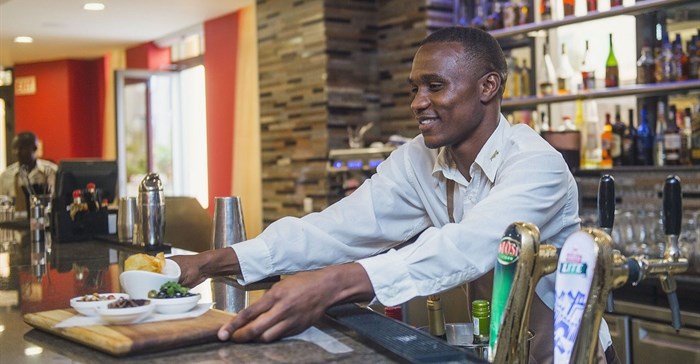Travellers have started to see hotels as more than just a place to rest their heads. They want a taste of the country they are visiting - an authentic, locally relevant experience in a world-class setting. Carlson Rezidor Hotel Group has thus put itself at the forefront of this localising approach to meeting the needs of travellers.
Carlson Rezidor has set a development strategy for Africa that provides a sense of the locale in the design, staff and catering aesthetic. It offers brand infrastructure, systems and support that help any new build become a successful hotel. Rezidor’s experienced team of technical and hospitality professionals is available to advise project partners through every stage of each new build property, from preliminary concept to the grand opening, and beyond.
Hiring local staff for an enhanced offering and balanced leadership
Hiring staff who grew up in the area is another way hotels can ensure a credible local offering. This ensures that the hotel group has the relevant people - from front desk to management, staff who not only understand the local language but also have insight into area history and attractions.
Besides enhancing the hospitality offering, hiring and training local staff is a key way to develop talent. Carlson Rezidor’s localisation strategy works with the company’s Africans In Leadership and Balanced Leadership policies to meaningfully transform and create opportunities in the hospitality industry.
“Balanced leadership is a business imperative,” said Gyrieyah Slemming, area HR director for Africa and Indian Ocean at Rezidor. “Many companies have proven that gender-balanced teams create more sustainable results and are more likely to outperform companies that don’t embrace balanced leadership. With the increased diversity in our marketplace, it is very important to reflect this diversity also in the company leadership at all levels.” As a result, we are committed to advancing the growth of both women and Africans in Leadership. We have been able to increase our representation of African GM’s in Africa by 13% in the last year.
Localised design
On the design front, localised design principles help to give each hotel a relevant identity that resonates with guests. This is true in that the Radisson Blu hotels are known for their sophisticated, stylish brand presence, and the Radisson Red’s edgy, contemporary touches.
A taste of local cuisine
The localisation approach is also fundamental to the food and drinks offering. “Food and drinks are often the heart and soul of a hotel,” says Craig Carmichael, Carlson Rezidor area director of procurement, and area chef for Africa and Indian Ocean. “A hotel might earn its money from room nights, but without an attractive restaurant offering a stimulating culinary experience, few will want to visit the hotel.
“What hotels have realised over the past few years is that to best offer this culinary experience, hotels need to provide a quality localised offering.”
“A business traveller visiting Kenya might spend most of his or her time there locked in meetings and conferences, so the little free time they have must give a sense of the country,” says Carmichael. “This is the time for Kenyan cuisine to shine. Décor should have a Kenyan flavour and even the drinks and bar snacks should be Kenyan.”
Travellers are adventurous by nature. They want the opportunity to try something new and to feel the country. If they can’t go on a game drive or a safari, a hotel with a relevant, authentic localisation approach can still give guests a real sense of place.
Carlson Rezidor is finding that menu designs with local elements resonate with both locals and visitors. This creates opportunities for local chefs, schooled in the tastes and traditions of the country, the ingredients required and the kitchen technology it takes to do them justice. A new, upscale restaurant must be aspirational, with local appeal. Although a hotel might have European design influences, residents from the neighbourhood will expect to find their local drink on tap, and a creative take on their favourite dishes.
The case for localisation a compelling one
The case for localisation is a compelling one, and it is a principle followed by many international hotel groups. Doing procurement locally is also a good way of reducing a business carbon footprint by minimising the distance food and design elements need to travel from source to the hotel.
At the Park Inn Nairobi, for example, head chef Charles Gachomo is Kenyan. He understands the culture, he speaks the language and is equipped to source the best ingredients. He also understands the exchange rates and the cost implications of various dishes. Local staff will also be able to create a homegrown interpretation of an international concept. A breakfast idea that calls for the buffet presentation to resemble a local deli – as our Super Breakfasts do – can only be delivered by a food and drinks manager who really understands what that means.
Guests – whether from across the world or across the street - visit a hotel for a reason. They want world-class hospitality and brand reliability delivered in a way that is unique to the area. “As a hotel group, Carlson Rezidor is constantly reconciling these considerations – localisation and world-class hospitality,” concludes Carmichael. “It is becoming increasingly clear that we can’t have one without the other.”

























